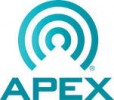1 Gitanjali Job

Special Educator
Gitanjali
posted 5mon ago
Job Description
- Individualized Education Plans (IEPs): Develop and implement personalized learning plans for students with special needs, addressing their specific challenges and goals.
- Adapted Instruction: Modify teaching methods, materials, and assessments to accommodate various learning styles and abilities.
- Collaboration: Work closely with classroom teachers, parents, therapists, and other educational specialists to ensure a cohesive and supportive learning environment.
- Assessment and Progress Monitoring: Conduct assessments, track student progress, and adjust teaching strategies based on individual needs and performance.
- Behavioral Support: Provide strategies and interventions to address behavioral challenges and support social and emotional development.
- Advocacy: Advocate for the needs of students with disabilities or special needs within the school system and ensure they receive appropriate resources and support.
Qualifications:
- Education: A bachelor's or master's degree in Special Education or a related field.
- Certification: Certification in Special Education or relevant teaching credentials, depending on regional requirements.
- Knowledge of Special Needs: Understanding of various disabilities, learning disorders, and behavioral challenges, along with strategies to address them.
- Individualized Instruction: Ability to create and implement individualized education plans tailored to students' unique needs.
Employment Type: Full Time, Permanent
Read full job description What people at Gitanjali are saying
What Gitanjali employees are saying about work life
based on 5 employees
Flexible timing
Monday to Friday
Within city
Day Shift
Similar Jobs for you
Share an Interview



























